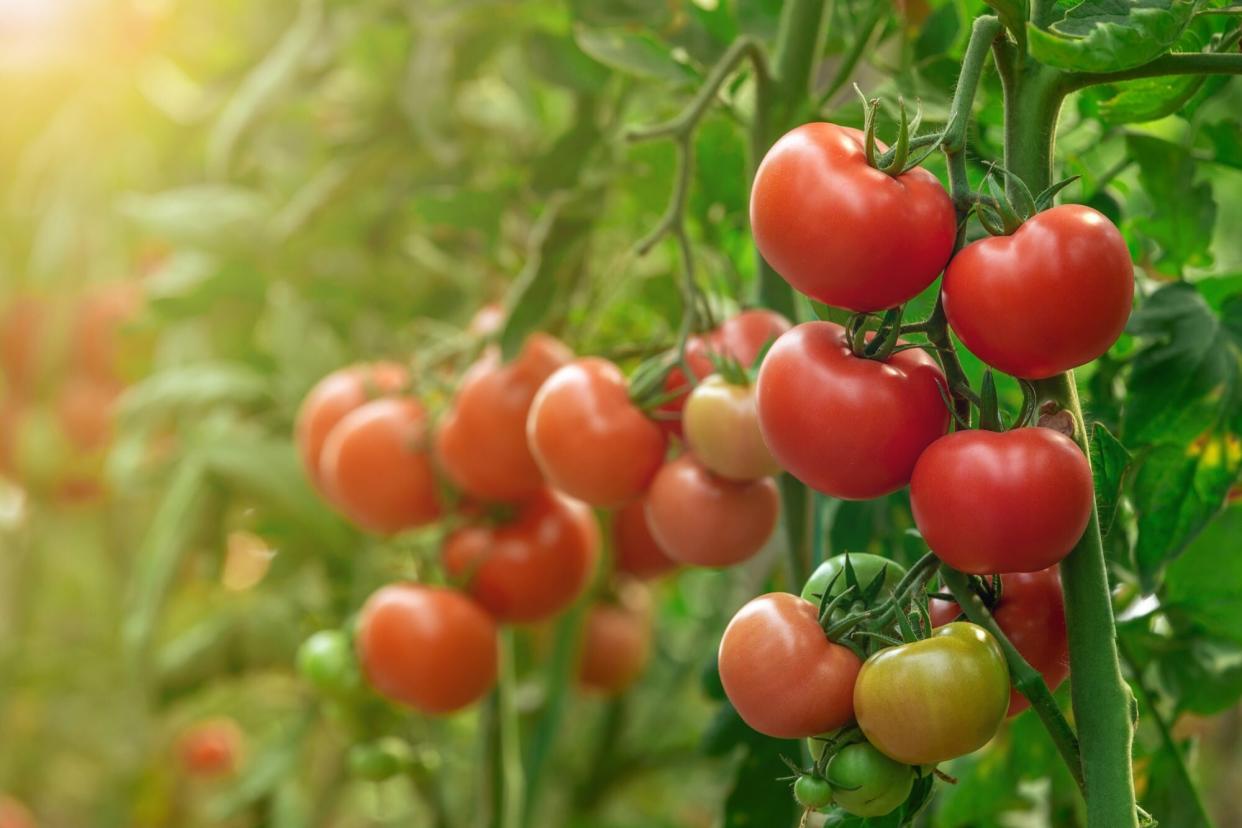Tomatoes Might Soon Be a Leading Source of Vitamin D, Thanks to Science

bymuratdeniz / Getty Images
Your local grocery store or farmers' market carries plenty of fruits, including tomatoes, that are packed with vitamins and minerals to improve your health. When it comes to this particular piece of produce, however, researchers are currently attempting to modify it to boast even more benefits. According to CNN, a team of scientists have created a gene-edited tomato using CRISPR-Cas9 technology to fill the fruit with vitamin D.
The team decided to infuse tomatoes with this vitamin to help people protect their bones, muscles, and teeth, per their new study published in the scientific journal Nature Plants. To do so, researchers used the compound from the tomatoes' skin, plant leaves, and unripe green fruit to make vitamin D, officially called 7-DHC, or provitamin D3. To preserve the vitamin D in the fruit, the team blocked a gene that typically transforms provitamin D3 into cholesterol. They did this by treating the tomatoes with UVB light.
The result? The team found that their treated tomatoes could provide the same amount of vitamin D3 found in two medium-size eggs or a can of tuna. Their findings might also help them apply this same gene-blocking, vitamin D-producing tactic to other fruits and vegetables, such as bell peppers, chiles, eggplants, and potatoes, Martin said.
Related: The One Type of Vitamin D That Will Strengthen Your Immune System
This is a major accomplishment, since the vitamin D we gain through our diets is currently available mostly via meat and dairy products. "This exciting discovery not only improves human health, but contributes to the environmental benefits associated with more plant-based diets," Guy Poppy, a professor of ecology at the University of Southampton, told the Science Media Centre in London. He added that today's plant-based diets can be challenging from a health perspective, since they don't always deliver the key "vitamins and minerals widely found and bioavailable in animal products." A vitamin D-packed tomato could change that.
"I think that having a dietary source [of vitamin D] in the form of a plant also means that you can get added benefit from eating tomatoes. We don't eat enough fruit and [vegetables] anyway. A tomato is a good source of vitamin C, as well," Poppy added.

